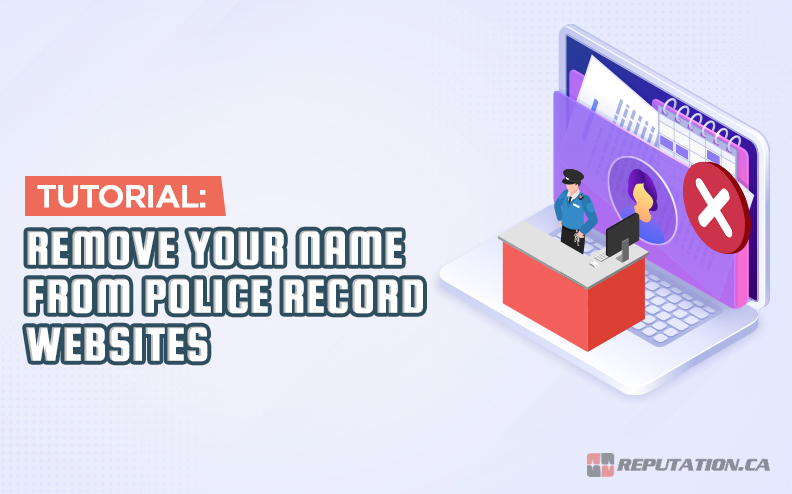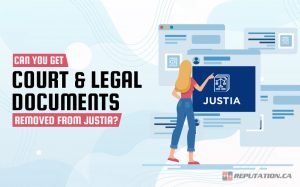A lot of information about you as an individual is a matter of public record. Anyone can look up your name, your birthday, your home address; this is all public information. In fact, there’s a lot more on this list than many people realize, including driver’s license status, voting records, and more.
Some of this information is, well, whatever. Who cares if someone can search for you and find your name? Other information is a little more sensitive and perhaps should be protected, even if it isn’t.
Not much information is as sensitive or as potentially damaging as one particular kind of record, however. That record is the record of run-ins with the law. Whether it’s parking fines or speeding tickets, arrest records, or court proceedings, all of this information can be extremely sensitive.
What’s worse is that this information can be very damaging. Did you know that over 77% of employers say they perform a Google search on any candidate they’re considering hiring? How many people lose potentially promising jobs because their name comes up on a court records website when their name is searched?
For obvious reasons, you likely want to get your name removed from these websites. It’s a matter of protecting your reputation, securing future job prospects, and letting the past stay in the past. Something like a speeding ticket shouldn’t jeopardize your ability to get a job or qualify for a loan!
Step 1: Understand the Types of Police Record Websites
First of all, it’s important to recognize the different kinds of websites out there that can host records of your potentially-sordid past. Generally, these sites fall into four categories.
- Official court and police websites.
- Secondary sources like police blotters and local news sites.
- Mugshot and arrest record websites.
- Extortionate “public record search” sites.
Each of these needs to be handled in different ways. Unfortunately, the process isn’t as simple as it is for some other kinds of personal information hosted online, in that you may not be able to send a simple removal request.
For #4, a record removals request, a filing under the Canadian “Right to be forgotten” laws, or even a DMCA might be enough to get the record removed. However, it’s worth being aware that many of these sites do not host information themselves; instead, they’re fronts for centralized information brokers like Intelius. They are free to ignore takedown requests because they don’t host information themselves; they only look it up from other sources when someone runs a search. To get your information removed from those sites, you need to go to the core broker, which can be an arduous process.
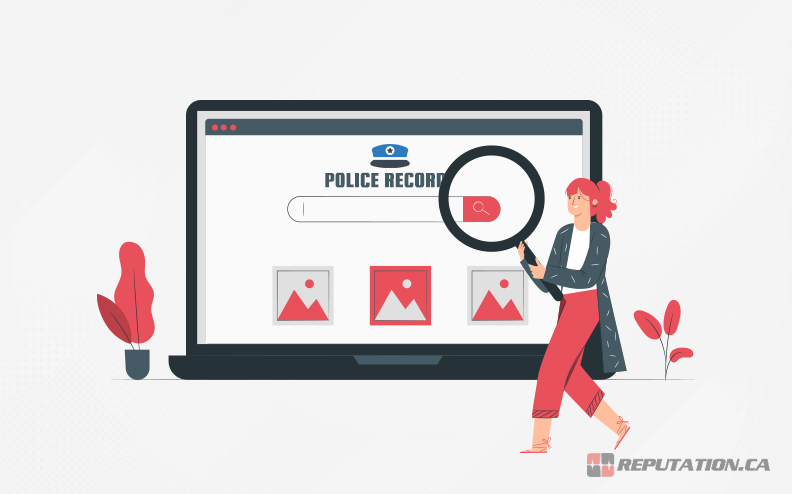
For #3, you can often file takedown requests, but you may need to jump through more hoops. Unfortunately, court records and legal proceedings are a matter of public record, and you may need to get the courts involved to get the records sealed before they can be removed.
The biggest problem with “mugshot websites” is that they tend to be both prolific and lacking in nuance. They don’t care if no charges were filed, if there’s a case of mistaken identity, or if charges were dropped.
“While many of these sites claim to operate with the best intentions with a goal of improving access to information and other civic-minded purposes, the reality is of these site’s business practices calls these proclamations into question. Many of the mugshot websites will not remove mugshots even if the charges have been dismissed, dropped, or downgraded or when no charges were actually filed. Many will not remove the mugshot even if the individual is acquitted on the charges or if the conviction is expunged or sealed. However, many of these sites WILL agree to remove the arrest photo if you hand over a significant sum of cash – typically no less than $100, but often $500 or more.” – Minc Law.
The same issue of public record goes for #2 and #1. Court records cannot easily be removed from police, court, and news sites without a legal request. News sites, in particular, may even have a vested interest in not removing legal records, especially about public figures, depending on their political agenda.
Step 2: Compile a List of Sites
Unfortunately, chances are that all four categories of sites are hosting your records. As soon as court records pop up, they proliferate across blotters, news sites, mugshot sites, and public record search sites. One arrest record, even if no charges are filed, can be populated across hundreds if not thousands of websites.
The first thing to do, then, is compile a list of sites. This is a tedious process but can be made easier by using a spreadsheet. Our recommendation is to make a spreadsheet with four columns.
- The name of the site hosting the information.
- The URL of the site hosting the information.
- A categorization for the site; which of the four categories above does it fall into?
- A link to the removals page for the site, if one exists.
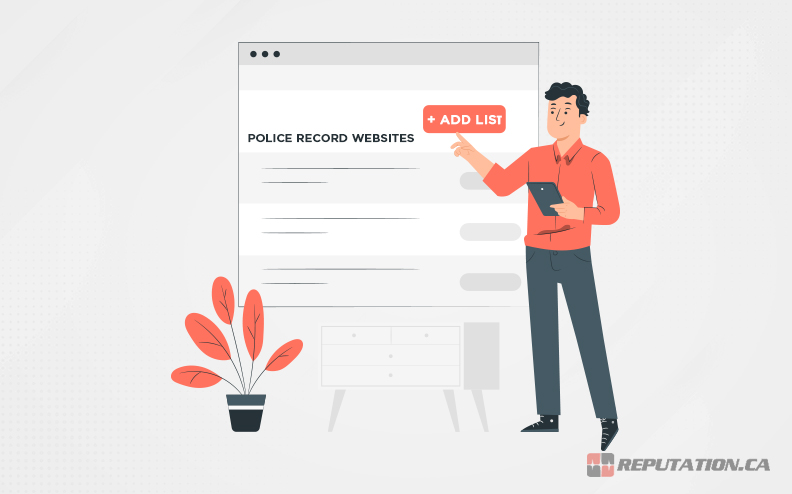
You can customize this to your needs, of course. Sometimes it can be useful to record an estimate of how hard the site makes it to remove information or whether or not it demands payment.
It’s also worth mentioning that a Google search will only go back so far; they index many more pages than they will typically show. Normally, this isn’t a problem, but if you’re trying to be thorough, omitted results will require a second or third pass over the search results once the initial sites have been removed.
Step 3: File Any Removal Requests Possible
At this point, you can do what you can to file any removal requests available to you. Some public record sites and personal information sites allow you to file a removal request and have your profile removed, no questions asked. This will likely be a minimal number of these sites. Often, the sites will:
- Be official court records sites, which will not remove records without a court order.
- Be sites that don’t host information directly, and thus won’t remove anything.
- Be sites that demand official legal paperwork, legal threats, or fees to have information removed.
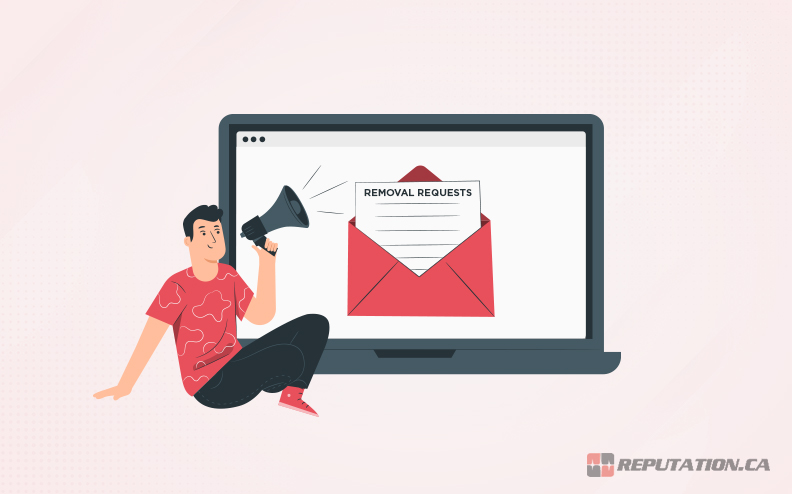
If you live in Europe, in Canada, or in a state in the U.S. that has privacy protection laws, you may be able to go directly to Google. Google offers a form to fill out to exercise your right to be forgotten, and once processed, they will remove any results about you from their search. That link will explain more about the process, what they remove, and how it all works. It’s also worth mentioning that the removal may only apply to local Google versions, like Google.ca, Google.de, and Google.co.uk, not the core Google.com.
If you aren’t able to use this right, you will need to go about it in a more manual way.
Step 4: Consult with a Lawyer about Sealing Records
Once you have taken care of the low-hanging fruit, you need to consider talking to a lawyer.
The reason for this is that official court records sites, police blotters, and other “first party” data sources are under no obligation (in most cases) to remove your information. They are keepers of records; if your actions generated records, those records are kept, regardless of their impact on your life. As the theory goes, if you don’t want to suffer the consequences, don’t commit the actions.
Of course, this theory falls through if there were no actual actions or if the penalties are dropped. False charges, no charge arrests, and plenty of other situations exist where no actual crime was committed, but records are created nonetheless.

The proper action here is to have the court records expunged or sealed. Expungement means they are removed entirely, as if they never happened. An expunged record is a clean record. Sealed means the records are hidden from the public but can still be accessed in the future if a court order requires it.
Talking to a lawyer can help you with the process and inform you of whether or not it is viable at all. Unfortunately, in the U.S., there is no defined process for federal-level charges. State-level charges can be handled more easily, though the process varies from state to state. In any case, talking to a lawyer is required, as a court proceeding is usually the next step.
Step 5: Consider a Defamation Suit
Once your records are sealed or expunged, you can request that they be removed from any site that hosts them. Most legitimate sites will comply with this.
Unfortunately, many “mugshot” or “arrest record” sites are not legitimate sites. They are thinly-veiled fronts for extortion. They will demand money to have the information removed or will ignore your requests.

In these cases, you may need to get your lawyer involved again. This time, the keyword is defamation. Often, simply threatening to bring a defamation suit against these sites is enough to get your information removed. In other cases, it may be necessary to actually file suit. It depends on a case-by-case basis.
Both kinds of legal action take time and money, which makes reputation management at the legal level an unfortunate privilege of the wealthy as often as not. If your records mean you’re struggling to get and hold a job, it can be a tall order to want to hire a lawyer.
Step 6: Hire a Reputation Manager to Monitor the Situation
Another option is to hire a reputation management firm. A reputation management firm can offer several useful services.
Reputation managers know how to handle your records.
Learning the ins and outs of reputation management, getting records removed, and dealing with search results is a huge and daunting task. A reputation management firm can handle it all for you. After all, we do it professionally. We know how to find records, we know which ones are damaging and which sites can be ignored, and we know what needs to be done and with what authorities to get your situation cleaned up.
Reputation managers know which sites are worth hitting.
There are thousands of websites out there hosting personal information. Everything from LexisNexis to TheDirty and everything in between. Some of these sites can be ignored, and some simply don’t show up in Google searches anymore. It’s important, then, to know which sites can be ignored and which ones are high-priority targets for removal. If you’re just dipping your toes into reputation management, you will have no idea what to look for. We do.

Reputation managers can help build positive citations.
Reputation management is about more than just removing the bad content. After all, with the vast number of sites hosting personal information out there, it’s like playing an endless game of whack-a-mole. You knock out the top three pages of Google search, and the new top three pages are still reputation/defamation sites.
The key is to build positive content that can out-rank the majority of the negative content online. Then, you can target the negative content that still ranks and get it removed. Then, if anyone searches for your name, they’ll see mostly positive content, even if they dig back. They would have to be very dedicated to find the suppressed negative content, ten pages back in Google’s search results.
Reputation managers can monitor your reputation for future problems.
As much as we may not like it, time continues to move. If someone has a grudge against you, negative records have a way of popping back up time and time again. A reputation manager can also help monitor your reputation and alert you if these sorts of records start popping up again. And, of course, we can help clean them up if they reappear.
If you’re having trouble with legal records or even the implication of legal records despite no such records existing, there are solutions to your problem. Contact us today, and we can help you work through it. Additionally, if you have any questions about police record websites or about what may come up when you search your name online, we will gladly assist you.




